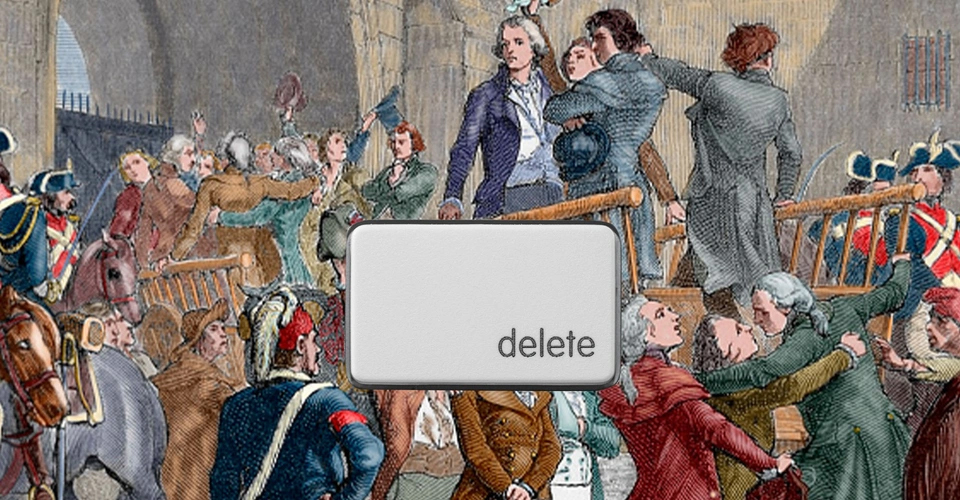
Censorship, Counterspeech, and Cancel Culture
“As the philosopher Rae Langton argues, we can also ‘undo’ hateful speech from the inside, by dismantling the conditions needed for the speech act to have its force in the first place. As we saw, some speech acts require the speaker to have authority. And some presuppose content that gets smuggled into the ‘conversational score’. For instance, saying: ‘Even George could win’ presupposes that George is not a promising candidate, signalled by the ‘even’. According to Langton, this serves as a ‘back-door’ speech act that, if left unchallenged, gets accommodated and added to the ‘common ground’, changing what’s permissible to think and infer about the discussed subject. It becomes accepted that George is *ranked* as inferior.
We undo such speech by being active hearers. Langton observes how we can ‘block’ presuppositions and their back-door speech acts: ‘Whaddya mean – even George could win?’ Calling out presuppositions spotlights the content that might otherwise have gone under the radar. Once exposed, this content can then be challenged or rejected, preventing it from entering the common ground.”
I’ve encountered two really good pieces of media recently that both, for the most part, deal with the related topics of censorship and “cancel culture.” These are topics that interest me and ones in which I’ve blogged a bit about before (here, here, here).
The quote above comes from an Aeon article written by philosopher of art, Daisy Dixon, and it offers some ways to deal with offensive art; ways that I am definitely liking, for sure! Dixon begins by framing art as a form of visual speech and then discusses a couple of tactics that essentially block and undo hateful speech. She writes:
“Instead of censorship, some have opted for an alternative response to hate speech. We can challenge, refute or even undo the harms of hate speech with more speech. Speaking back presents counternarratives and counterevidence to the falsehoods expressed. This might involve publicly denouncing instances of hate speech and affirming the dignity of the groups targeted, or refuting transphobic speech in social media forums, or challenging racist speech on public transport or at home.”
I really like the idea mentioned in Dixon’s article of “undoing” bad art with better art and, additionally, I’m also keen on the idea of transparent curation, or curation that that gives an accurate and true narrative surrounding the art. This doesn’t sound far off from trigger warnings to me which are also sometimes necessary because I still think Roland Barthes has a point when he inidicates that the artist’s intention (whether it be positive or negative) has little to nothing to do with how a work is received by a viewer. We all have our own histories, our own experiences, our own traumas, and ways of perceiving that we bring to a work of art. So even though the artist’s intent it’s really just another piece of interesting information that gets mixed in with everything else for the viewer, I would imagine that it’s still best for one to seek the most comprehensive understanding.
The second related piece of media I enjoyed recently was an episode of You’re Wrong About (YWA), which is a podcast that features two really smart journalists, Sarah Marshal and Mike Hobbes, discussing people or events that have been miscast in the public imagination. This particular YWA episode focussed on cancel culture and the hosts did a fantastic amount of research for the episode. They trace the origins of the phrase and make some pretty great observations, for instance Hobbes indicates at one point that:
“The entire concept of cancellation is, in part, counterfeit. Because to cancel someone you have to take away something that they had. Whereas a much larger problem in society is people never being given something in the first place. Like it’s basically impossible to cancel a transgender executive of a Fortune 500 company because there are no transgender executives of Fortune 500 companies…part of me feels like, structurally, the entire construction of the cancel culture moral panic is [coming from] people in power who are afraid of losing that power.”
Mike and Sarah also make the astute observation that a significant contributing factor in the manifestation of “cancel culture” is the incredible shift in collective consciousness occurring due to our adoption of the communication medium generated by html and flickering pixels which we collectively call the internet. Interestingly, this paradigm shift is akin in many ways to the one that seemed to occur in tandem with the advent of movable type and the printing press. The printing press allowed people access to information on a far greater scale and so does the internet. Not just that but cancel culture, the YWA episode points out, is closely tied to Twitter which has allowed marginal voices that were previously complaining about injustice in virtual isolation to organize and band together to begin movements with more force, speed, and efficiency. In other words cancel culture isn’t new, it’s been around for at least as long as the Gutenberg Bible and Martin Luther’s sola fide cancellation of the Catholic Church.
Tags:artcancel culturecensorshipDaisy Dixonmedia ecologyroland barthesYou're Wrong About
0 Comments